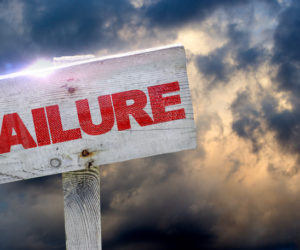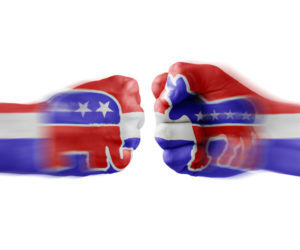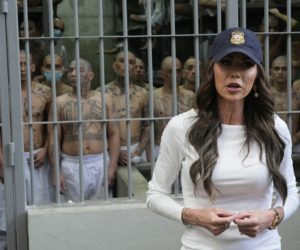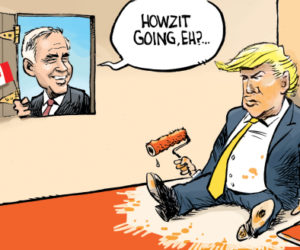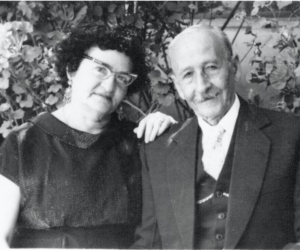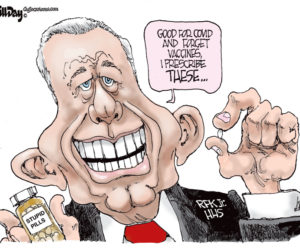
When asked his secret of love, being married fifty-four years to the same person, he said, “Ruth and I are happily incompatible.”
—Billy Graham
New love is the brightest, and long love is the greatest; but revived love is the tenderest thing known on earth.
—Thomas Hardy
Marriage is the foundation of the family and the family is the foundation of society: if we strengthen marriage, we strengthen the family, we strengthen the children and we strengthen the community. If your goal is to help improve the world, marriage is as good a place as any to start.
—Diane Sollee, Grand Rapids Family Summit, 1998
You may be wondering why I am giving these long quotes. Well I am reminded of these after reading today’s newspaper.
The New York Times: “It’s Official: To Be Married Means to Be Outnumbered…Married couples, whose numbers have been declining for decades as a proportion of American households, have finally slipped into a minority, according to an analysis of new census figures by The New York Times.
“The American Community Survey, released this month by the Census Bureau, found that 49.7 percent, or 55.2 million, of the nation’s 111.1 million households in 2005 were made up of married couples — with and without children — just shy of a majority and down from more than 52 percent five years earlier.
“And the numbers of unmarried couples are growing. Since 2000, those identifying themselves as unmarried opposite-sex couples rose by about 14 percent, male couples by 24 percent and female couples by 12 percent.
“Married couples have not been a majority of households headed by adults younger than 25 since the 1970’s, but among those aged 25 to 34 the proportion slipped below 50 percent for the first time within the past five years. (Among Americans aged 35 to 64, married couples still make up a majority of all households.)
” ‘It’s partially fueled by women in the work force; they don’t necessarily have to marry to be economically secure,’ said Andrew A. Beveridge, a demographer at Queens College of the City University of New York, who conducted the census analysis for The New York Times. ‘You used to get married to have sex. Now one of the major reasons to get married is to have children, and the attractiveness of having children has declined for many people because of the cost’.”
For full story click here.
If we are serious about renewing fatherhood, we must be serious about renewing marriage…Healthy marriages are not always possible. But we must remember, they are incredibly important for children. Our hearts know this and our nation must recognize this. None of us is perfect. And so no marriage and no family is perfect. After all, we all are human. Yet, we need fathers and families precisely because we are human. We all live, it is said, in the shelter of one another. And our urgent hope is one of the oldest hopes of humanity, to turn the hearts of children toward their parents, and the hearts of parents toward their young.
—George W Bush, June 7, 2001
No man or woman really knows what perfect love is until they have been married a quarter of a century.
—Mark Twain
Swaraaj Chauhan describes his two-decade-long stint as a full-time journalist as eventful, purposeful, and full of joy and excitement. In 1993 he could foresee a different work culture appearing on the horizon, and decided to devote full time to teaching journalism (also, partly, with a desire to give back to the community from where he had enriched himself so much.)
Alongside, he worked for about a year in 1993 for the US State Department’s SPAN magazine, a nearly five-decade-old art and culture monthly magazine promoting US-India relations. It gave him an excellent opportunity to learn about things American, plus the pleasure of playing tennis in the lavish American embassy compound in the heart of New Delhi.
In !995 he joined WWF-India as a full-time media and environment education consultant and worked there for five years travelling a great deal, including to Husum in Germany as a part of the international team to formulate WWF’s Eco-tourism policy.
He taught journalism to honors students in a college affiliated to the University of Delhi, as also at the prestigious Indian Institute of Mass Communication where he lectured on “Development Journalism” to mid-career journalists/Information officers from the SAARC, African, East European and Latin American countries, for eight years.
In 2004 the BBC World Service Trust (BBC WST) selected him as a Trainer/Mentor for India under a European Union project. In 2008/09 He completed another European Union-funded project for the BBC WST related to Disaster Management and media coverage in two eastern States in India — West Bengal and Orissa.
Last year, he spent a couple of months in Australia and enjoyed trekking, and also taught for a while at the University of South Australia.
Recently, he was appointed as a Member of the Board of Studies at Chitkara University in Chandigarh, a beautiful city in North India designed by the famous Swiss/French architect Le Corbusier. He also teaches undergraduate and postgraduate students there.
He loves trekking, especially in the hills, and never misses an opportunity to play a game of tennis. The Western and Indian classical music are always within his reach for instant relaxation.
And last, but not least, is his firm belief in the power of the positive thought to heal oneself and others.

